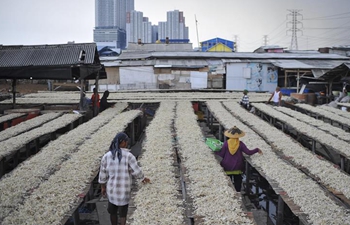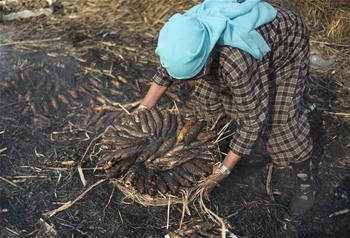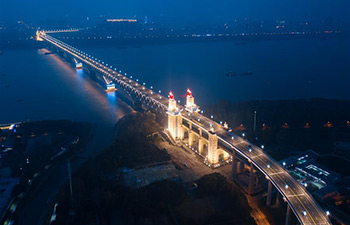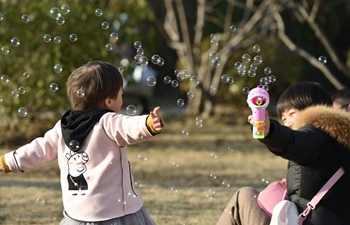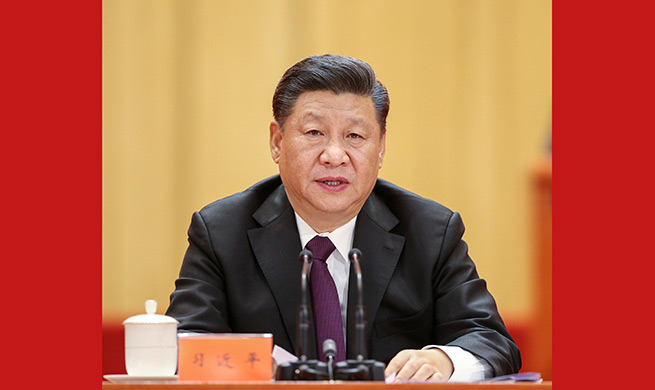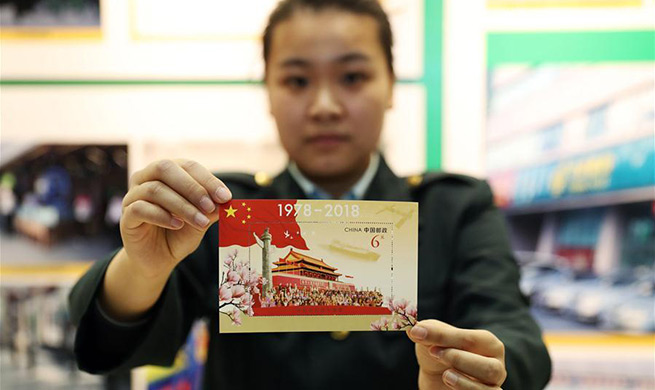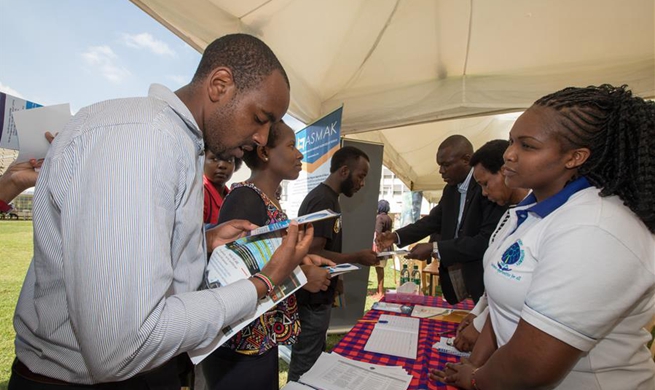by Mohamed al-Azaki
SANAA, Dec. 18 (Xinhua) -- Mohammed al-Dhabiby has been struggling to find treatment for his five-year-old daughter suffering from stomach cancer.
To keep the little girl Khadijah alive, the father has spent every penny he has to bring his daughter to the hospital in the capital Sanaa.
"We traveled from Abs district to Sanaa to treat Khadijah. I spent all my money. Many medicines are not available in the hospital due to the blockade," he told Xinhua.
Abs is situated in Hajjah province in the far north of the war-torn country, just a few miles south of Midi and Harad districts bordering Saudi Arabia. Midi and Harad have been the main frontlines in the province since the war erupted nearly four years ago.
The government troops backed by the Saudi-led military coalition advanced in August to the northern edge of Abs, forcing hundreds of families to flee to the southern part of the district.
Like thousands of troubled Yemeni people, al-Dhabiby and his daughter suffer from the war and disease.
The war and all-out blockade have caused severe shortage in medicines, as well as in food and fuel.
The United Nations(UN) brokered a cease-fire deal between the Shiite Houthi rebels and the internationally-recognized government of President Abd-Rabbu Mansour Hadi in the peace talks hosted by Sweden last week.
The cease-fire entered into force on Tuesday and covered the strategic Red Sea city of Hodeidah and its ports, Salif and Ras Issa as the first phase of confidence-rebuilding measure between the rival forces.
Hodeidah port is the key entry to almost 80 percent of Yemen's imports of medicines, food and fuel, as well as aid.
Much of the country's north, including Hodeidah, Hajjah and Sanaa are still controlled by the Iranian-backed Houthis since the ousted the government of Hadi in late 2014.
"I hope that the UN which sponsors the peace talks can press relevant parties to lift the blockade and reopen Sanaa airport in order to facilitate the imports of medicines and the travel of patients for treatment abroad," al-Dhabiby said.
Another five-year-old girl lies on a bed next to Khadijah in the National Oncology Center in downtown Sanaa. Tawakul al-Akhram also traveled from Abs to receive chemotherapy IV for treating a cancer tumor in her stomach.
Four-year-old Hani Abdulkhalik had his right hand amputated after the chemotherapy dosages failed to treat the cancer. In fact, all 56 beds at the center are occupied with patients, mostly children and the elderly.
Mohamed al-Yadee, head of non-governmental Cancer Patients Charity, told Xinhua that the war and blockade have caused acute shortage in medicines and made it very difficult to help transport those in critical conditions to abroad for treatment.
"We called the humanitarian aid agency to provide more medical aid for the patients and the UN to help reopen Sanaa airport as that would facilitate the travel of patients in critical conditions," al-Yadee said.
According to Mohammed al-Mahfadi, the information and public relations official of the National Oncology Center, the center is the only one to treat cancer tumors in Yemen.
"It's a state-owned center providing free of charge treatment and medicines to the cancer patients," al-Mahfadi said.
According to the patients, not all medicines are available in the center, so the patients need to buy many medicines from private pharmacies outside, which are very expensive.
Al-Mahfadi said the number of cases have increased since the war erupted in March 2015 and the center receives up to 500 new confirmed cases each month.
The UN humanitarian agencies have warned that the Yemeni health centers are facing collapse due to acute shortage of medicine supplies, fuel, as well as salary cut of state medical staff as the civil war and all-out blockade near their four-year mark.
Yemen is now on the brink of mass famine, with about half of the children under five chronically malnourished, and the cholera epidemic has already infected over 1 million Yemenis, mostly children. Besides, about 25 million Yemenis have no access to clean drinking water.






